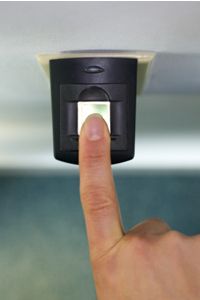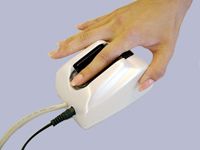We've all seen movies in which a character has a retinal scan to prove his or her identity before walking into a top-secret installation. That's an example of a biometric system. In general, biometrics is a collection of measures of human physiology and behavior. A biometric system could scan a person's fingerprint or analyze the way he or she types on a keyboard. The purpose of most biometric systems is to authenticate a person's claimed identity.
Biometrics tend to be more convenient than other methods of identity authentication. You might forget your ID at home when you head out the door, but you'll still be able to use biometric devices. Imagine verifying your identity while at the store by swiping your finger across a sensor.
Advertisement
But along with convenience and security comes a concern for privacy. For biometrics to work, there needs to be a database containing the relevant information for each individual authorized by the system. For example, at that top-secret installation, every employee's biometric signature would have to be recorded so that the scanners could verify each person's identity.
This might not present much of a problem on its own. If the only data the system stores relates to the actual biometric measurements, privacy violations are at a minimum. But by their very nature, biometric systems collect more information than just the users' fingerprints, retinal patterns or other biometric data. At a basic level, most systems will record when and where a person is at the time of a scan.
Advertisement



